
General Secretary To Lam speaks at the discussion session in the National Assembly group, October 31 (Photo: Media QH)
In a recent article, General Secretary To Lam stated: "Although the organization of the political system in our country has been renewed in some parts, it still basically follows the model designed decades ago, many issues are no longer suitable for new conditions, which is contrary to the law of development; creating a mentality of saying but not doing". More specifically, the political system in our country today is still too cumbersome, with many levels, levels, and many focal points. Functions, tasks, powers, organizations, and working relationships between many agencies and departments are not really clear, still overlapping, with unclear legal status; affiliated units with legal status are increasing and increasing. This situation leads to many consequences, both immediate and long-term. The most obvious consequence is the hardship and time-consuming situation of people and businesses every time they have to implement State management regulations. Next is the budgetary cost to ensure the operation of the entire apparatus. Currently, salary payments and regular annual expenditures account for 70% of the budget. Overlapping, unclear responsibilities and authorities also lead to the risk of causing trouble, shirking responsibility, or more seriously, encroachment, "making excuses", hindering, and even neutralizing each other between units. All of the above manifestations have a negative impact on the effectiveness, efficiency, flexibility to meet needs, initiative, creativity, as well as the overall strength of the political system. According to General Secretary To Lam, if revolutionary changes are not resolutely implemented, the limitations of the political system can hinder the country's development. Therefore, in order for the country to have more motivation in the new era, the era of national development and growth, one of the most important issues is to resolutely modernize the political system according to the motto as proposed by the General Secretary: "Sleek - Lean - Strong - Effective - Effective - Efficient", meeting the criteria of modern national governance in the 21st century. These must be strong changes on an overall scale to be able to create clear changes compared to the present in the quality of operations of the entire political system. More specifically, the results from the changes related to the political system must be reflected in positive improvements on a number of basic criteria such as the Party's leadership effectiveness, the State's management effectiveness, the Fatherland Front's ability to gather and unite society, the representative capacity of socio-political organizations, etc. In 2017, the Party Central Committee issued Resolution No. 18-NQ/TW on continuing to innovate and reorganize the apparatus of the political system towards increasing effectiveness and efficiency. Since then, the process of streamlining the apparatus towards narrowing down the number of focal points, reducing levels, reducing staff, etc. has been carried out nationwide, and has so far achieved clear results. However, the results of streamlining the apparatus and reducing staff have not met our requirements and expectations. That is to say, in order to carry out the revolution in streamlining the organizational apparatus of the political system, we must soon implement a task set out in Resolution 18-NQ/TU, which is: by 2030, complete the research and implementation of the overall organizational model of the political system in accordance with the specific requirements and conditions of our country in the new period. In theory, the overall model of the political system first of all helps us to recognize the most general characteristics of the organizational apparatus system, the authority, functions and tasks of each subject, the operating mechanism as well as the operating principles of the entire system. Along with that are specific regulations to regulate all actions of the subjects, as well as the relationships, both horizontally and vertically, between the elements that make up the political system. In any country, the overall model of the political system must necessarily be based on and reflect the system of values that are promoted and pursued by the entire social community. It is the difference in the value system that creates the difference in the political system between countries. The political system is first of all the material manifestation of the system of political and social values. In turn, the political system is also the most crucial means, gathering the most important subjects in the national governance structure, taking on a decisive role in the process of realizing the above values. In our country, the design of the overall model for the political system must first of all closely follow and reflect the system of socialist values and the goal of a rich people, a strong country, democracy, fairness, and civilization. Next, the ability to operate stably, sustainably and promote the role of the political system also depends on the ability to integrate new values, promoted by social forces. The second fundamental issue that needs to be considered when designing a political system model is the organizational apparatus, agencies and units from the central to local levels. The requirement is to streamline the scale of focal points, avoid overlapping functions and tasks, along with clear decentralization and delegation of authority. Along with designing the organizational apparatus, handling the relationship between the Party and the State is also a particularly important issue. Accordingly, institutional regulations must not only ensure the leadership role of the Party but also minimize the risk of encroachment and excuses to replace the management role of the State. Experience in building a comprehensive model of the political system from many countries, typically the United States after gaining independence, or Japan and South Korea after World War II, shows the decisive role of political leaders as well as the country's most outstanding intellectuals. In other words, successful political system models are the product of the combination of determination, vision, progressive thinking and intelligence of political leaders and elite intellectuals. The revolution in streamlining the political system's organizational apparatus will be one of the most important driving forces to bring our country forward rapidly and strongly into the new era. Author: Mr. Nguyen Van Dang has a PhD in Public Administration and Policy from the Mark O. Hatfield School of Government, Portland State University, USA. He is currently working at the Ho Chi Minh National Academy of Politics.
Dantri.com.vn
Source: https://dantri.com.vn/tam-diem/thong-diep-cua-tong-bi-thu-ve-cuoc-cach-mang-tinh-gon-bo-may-20241110235237117.htm


![[Photo] Editor-in-Chief of Nhan Dan Newspaper Le Quoc Minh received the working delegation of Pasaxon Newspaper](https://vphoto.vietnam.vn/thumb/1200x675/vietnam/resource/IMAGE/2025/9/23/da79369d8d2849318c3fe8e792f4ce16)
![[Photo] Prime Minister Pham Minh Chinh chairs the 14th meeting of the Steering Committee on IUU](https://vphoto.vietnam.vn/thumb/1200x675/vietnam/resource/IMAGE/2025/9/23/a5244e94b6dd49b3b52bbb92201c6986)
![[Photo] The 1st Congress of Party Delegates of Central Party Agencies, term 2025-2030, held a preparatory session.](https://vphoto.vietnam.vn/thumb/1200x675/vietnam/resource/IMAGE/2025/9/23/e3a8d2fea79943178d836016d81b4981)
![[Photo] General Secretary To Lam meets voters in Hanoi city](https://vphoto.vietnam.vn/thumb/1200x675/vietnam/resource/IMAGE/2025/9/23/d3d496df306d42528b1efa01c19b9c1f)

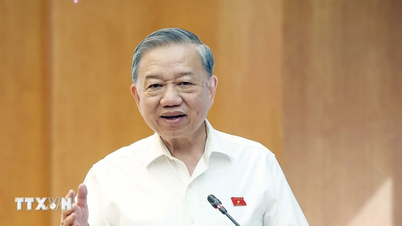

![[Photo] General Secretary To Lam meets voters in Hanoi city](https://vphoto.vietnam.vn/thumb/402x226/vietnam/resource/IMAGE/2025/9/23/d3d496df306d42528b1efa01c19b9c1f)

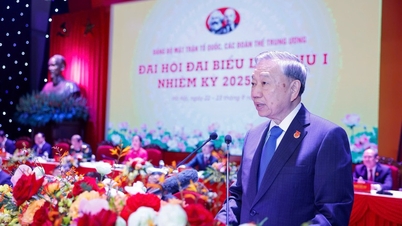


















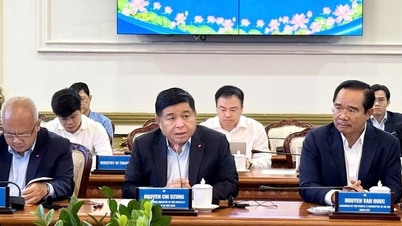
























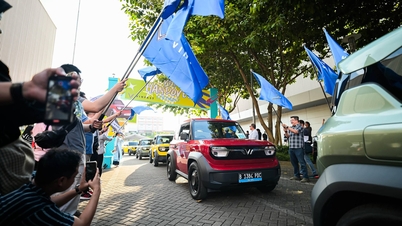

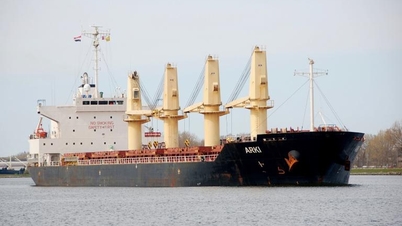


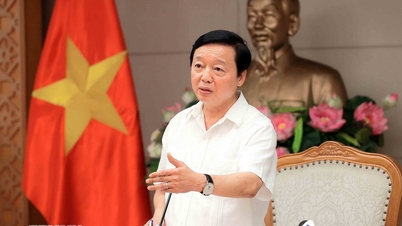
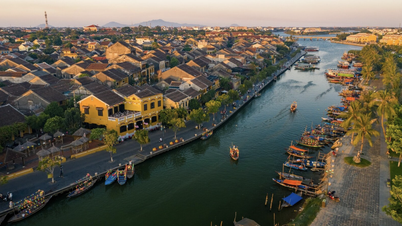





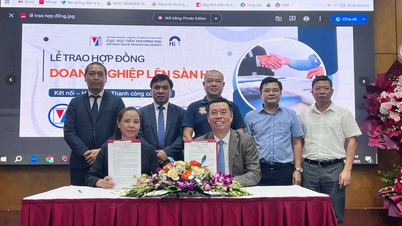


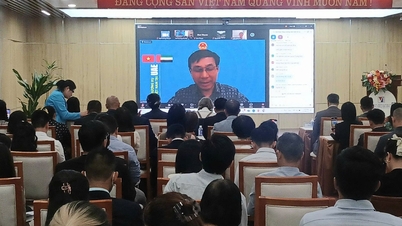


















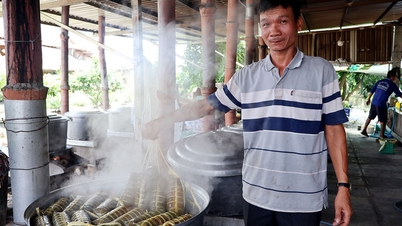





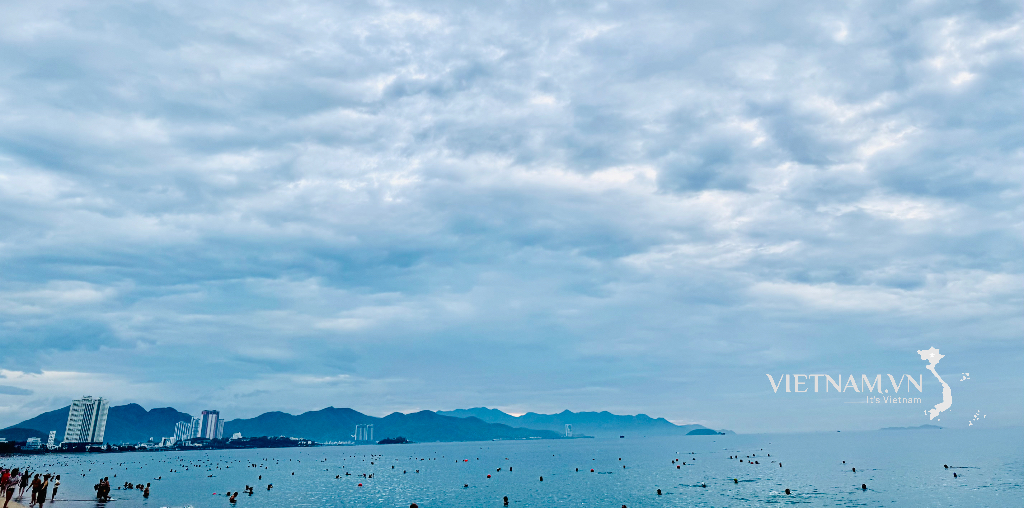


Comment (0)